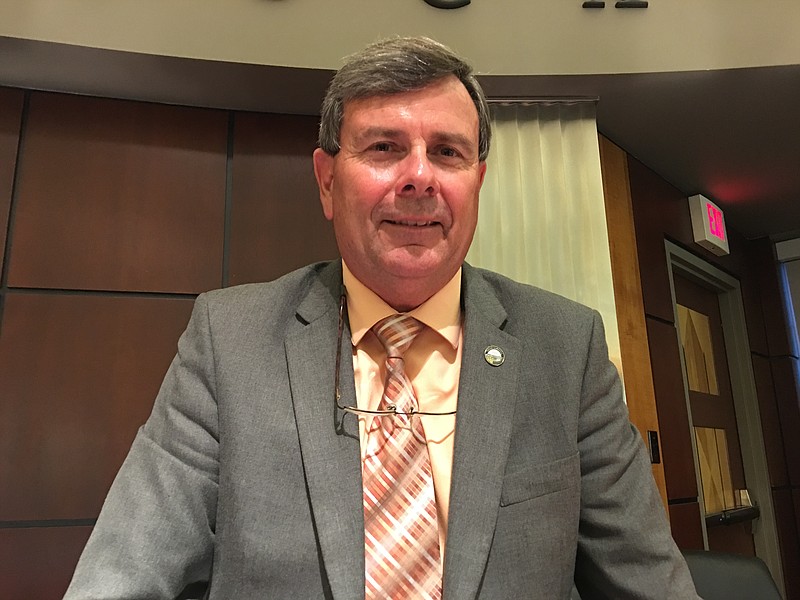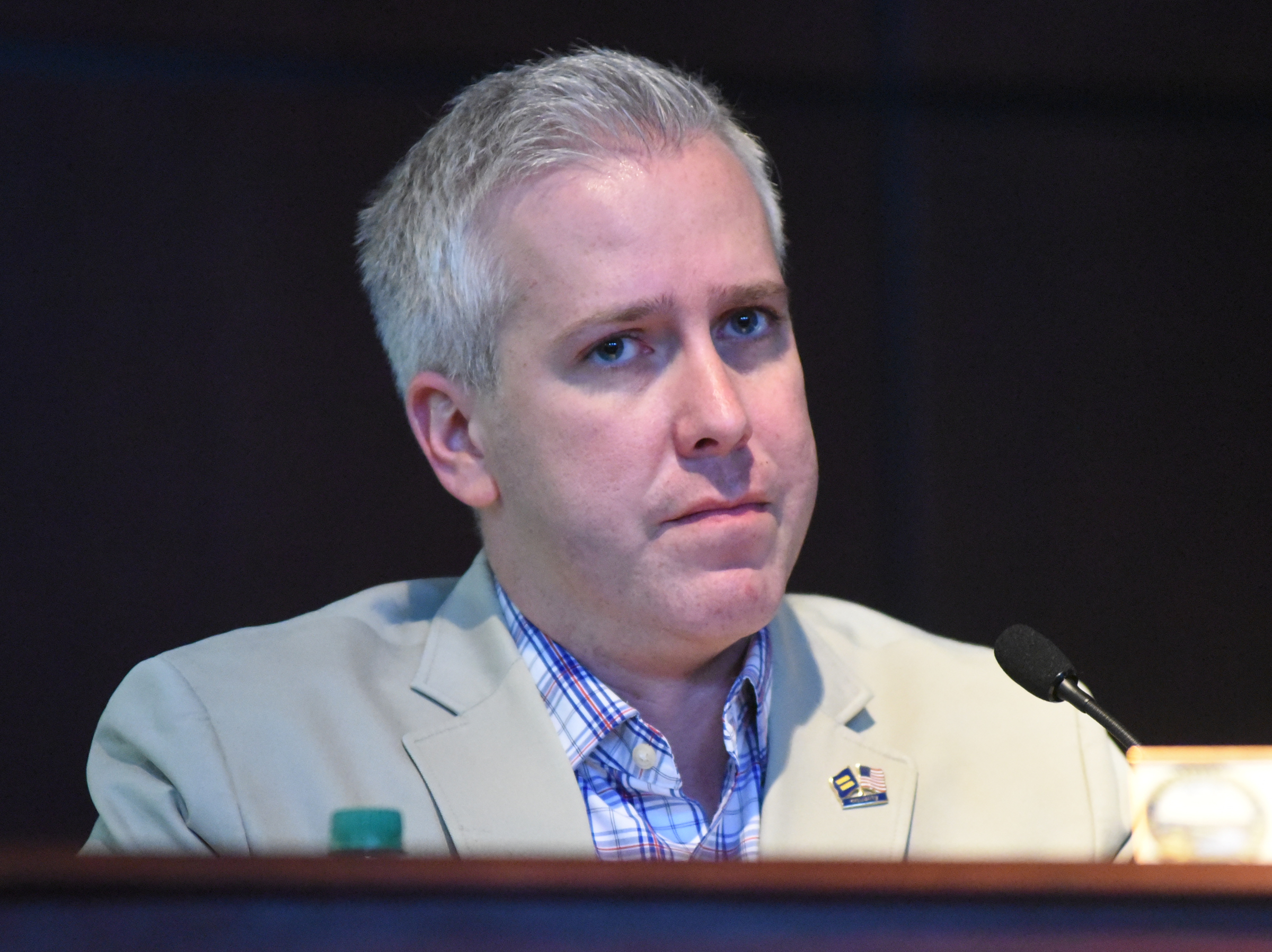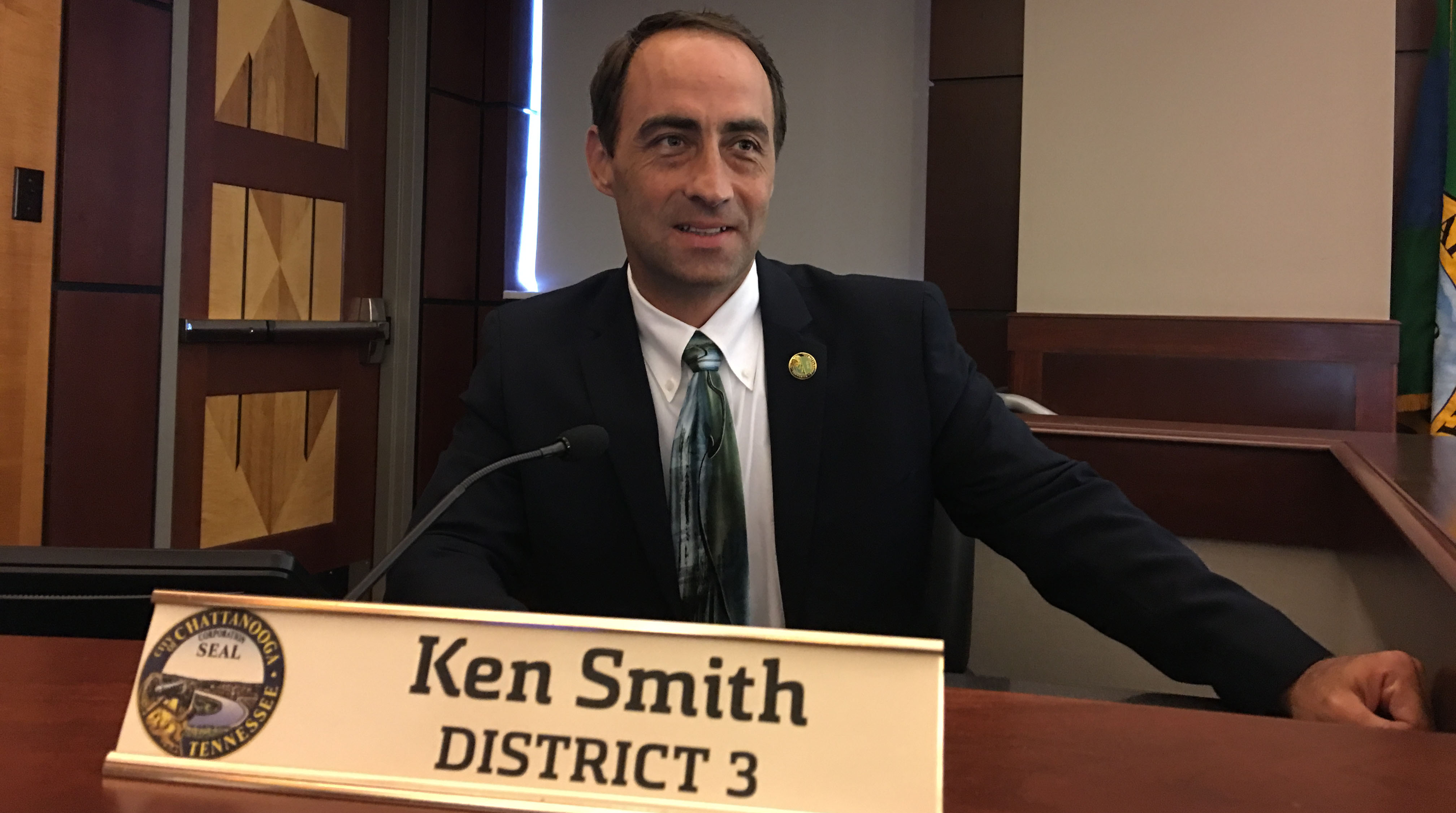Votes postponed
The City Council postponed scheduled votes concerning the sale of beer in movie theaters and new rules governing short-term vacation rentals until Oct. 25.
The City Council has approved an affordable housing tax break for Chestnut Flats, a $20 million apartment project on Chattanooga's Southside.
The 174-unit building makes the first proposal to take advantage of the city's new payment-in-lieu-of-taxes (PILOT) incentive program. Any developer applying for the program must make at least half of their units affordable to renters who earn less than 80 percent of the area's median income.
The Chestnut Flats plan exceeds the PILOT program's affordability thresholds by restricting all units to households earning no more than 60 percent of area median income. Rents range between $600 and $750 a month for the units. The development will offer a mix of one- and two-bedroom apartments.
On Tuesday, the council voted 6-2 in favor of the PILOT, with council members Chip Henderson and Ken Smith casting "no" votes. Councilman Larry Grohn did not attend the meeting.
"It's going to help solve a real problem in Chattanooga, and I'm proud to move for its approval," Councilman Chris Anderson said prior to the vote. Anderson serves as the chairman of the body's Economic and Community Development Committee.
Henderson voiced concerns about giving a tax break for developing the project site, a vacant, 3-acre lot located at 2108 Chestnut St.
"While this PILOT is attractive in that it offers 100 percent at 60 percent AMI, I still find it difficult for me to support new development - a piece of property not really costing the city any money right now and in the long run, may produce more [property tax revenue]," Henderson said.
After the meeting, Henderson said he has consistently opposed PILOTs involving new development due to suspending taxes on the improved property while simultaneously incurring increased costs for public safety and other public services for the property.
The PILOT agreement lasts 10 years in addition to a two-year construction period. During that time, the developer will pay no city taxes associated with construction. The city will then phase in full taxation in 20 percent increments, reaching 100 percent in five years.
Helen Burns Sharp, founder of watchdog group Accountability for Taxpayer Money, has called the project the city's "first good housing PILOT application since 1992."
Next Tuesday, the city council will consider a 41-year PILOT proposal involving the rehabilitation of senior living units at Jaycee Tower.
Contact staff writer Paul Leach at 423-757-6481 or pleach@times freepress.com. Follow on Twitter @pleach_tfp.


